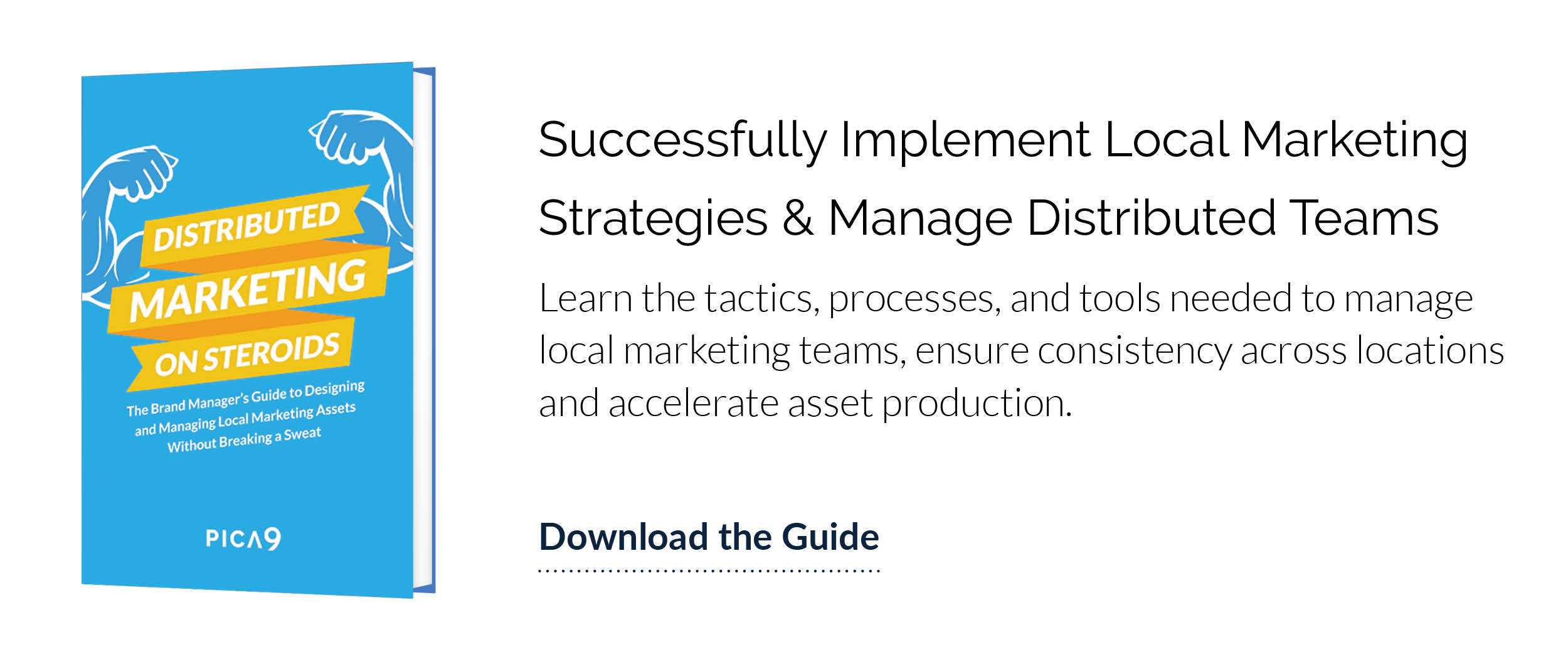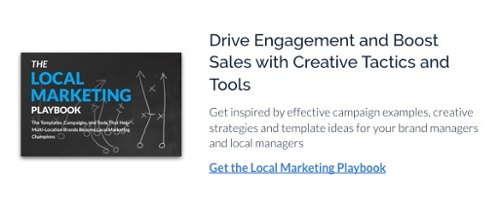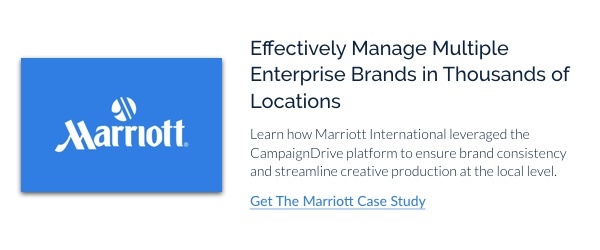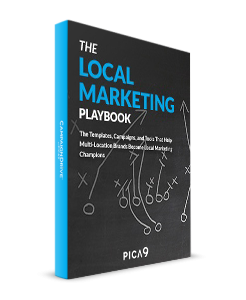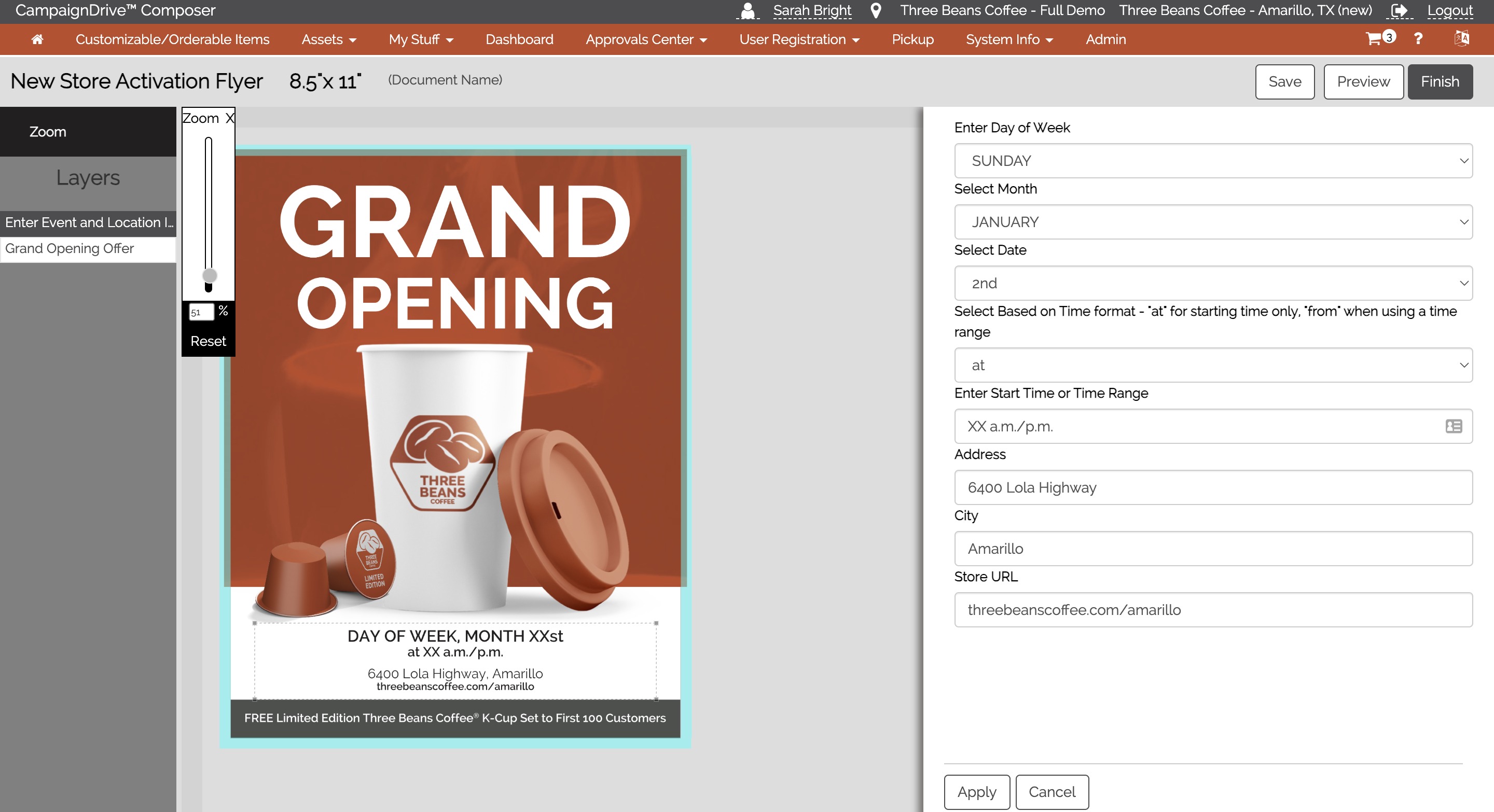Today's consumers expect a lot from a brand's marketing. McKinsey research calls today's climate the "on-demand" era and states that customers expect brand interactions to be fast, novel, easy and customized. As a brand manager, your challenge is to deliver on these expectations with real-time, relevant marketing.
The need to deliver large amounts of highly personalized, useful content has given rise to marketing automation. This category of technology allows companies of all types to "automate" superior customer experiences. Marketing automation is a broad term, encompassing many different features and vendors (a quick search on Capterra provides pages of options). Local marketing automation is specifically meant to help large brands balance the needs of brand management teams with their local franchisees, dealers, or representatives.
How is local marketing automation different from "regular" marketing automation software? What features do distributed brands need to drive value with this software? To shed some light on a confusing subject, we've collected the top questions brand managers ask about local marketing automation into one easy-to-read article.
What does "Local Marketing Automation" mean?
Local marketing automation (LMA) is best understood as Gartner describes it: "local marketing enablement software." While it does automate parts of your local marketing workflows and processes, it's really a tool that helps align local marketers with their national brand management teams. LMA platforms need to help brands complete key activities for local marketing, including:
- Enabling local marketers to create advertising, typically by using templates
- Enabling local marketers to align localized messages with national branding
- Enabling brands to store and organize content – including images, text, information and creatives.
LMA offers more than simply automation. A robust Local Marketing Automation tool should also encompass digital asset management (DAM) and product information management (PIM) capabilities, in order to help local marketers execute campaigns.
How is LMA different from regular marketing automation?
The term "marketing automation" is applied to software tools, generally cloud-based applications that help companies do personalized digital marketing at scale. These "engines" help brands deliver personalized content via conditional logic and use prospect behavior to "trigger" event-based emails. MA tools also support the sales process by gathering data on a prospect's digital behavior, like website visits and email engagement.
Many digital marketers have come to rely on the features most marketing automation tools of this type include:
- Lead conversion
- Lead scoring
- Email marketing
- Blogging
- Landing pages
- Social media
Marketing automation tools like these are generally designed for "digital-first" companies: B2B sellers and other businesses that may only do online marketing. Marketing automation allows these businesses to be efficient, and "do" more digital marketing with less effort.
There's a significant difference between LMA and these "regular" marketing automation tools. LMA is designed to help local marketers execute all kinds of local advertising, which may include print ads, in-store signage and digital campaigns. It's often used to give local marketers the ability to do branding properly, while marketing automation software is about results-focused, digital marketing campaigns. The users of local marketing automation software are unique as well. Typically, marketers use traditional marketing automation to create and test unique and totally new marketing campaigns on behalf of the whole company. Whereas with LMA, local marketers use the software to run marketing programs for themselves (their locations) that are largely defined for them by the brand.
Is Local Marketing Automation one tool or many different tools?
In general, local marketing automation is a term used to apply to one, very specific kind of cloud-based software application. This system is used to provide brand-approved templates to local marketers, in addition to many other capabilities such as reporting analytics, customized workflows, and digital asset management.
Theoretically, your brand could use multiple tools to supplement LMA capabilities. You could replace the tool's email sending with a tool like Eloqua, or use your organization's enterprise-wide DAM system to feed assets into the LMA instead of using the built-in DAM. Some LMA platforms support integrations for this reason. Regardless of how you choose to fit an LMA tool into your marketing stack, it should be able to give your affiliates an "all-in-one" hub, even if you don't plan to integrate anything besides your company intranet.
Who Needs Local Marketing Automation?
LMA tools are exclusively designed for the unique marketing challenges of multi-location brands. Most commonly, this means distributed brands with local representatives, franchisees, or dealerships across the nation or world. However, LMA may also drive value for some wholly-owned corporations with multiple locations, like Starbucks. The "typical" candidate for LMA has global branding requirements that are applied across 50 or more geographical locations, such as unique storefronts or dealerships.
LMA's primary purpose is to help local marketers execute campaigns. Locals gain the immediate benefit of being able to translate brand templates into relevant campaigns.
How Do Local Marketers Benefit from LMA?
LMA tools should enable local representatives to do all of the marketing they couldn't do before they had the tool, even if they don't have a background in digital marketing or graphic design. It should help them create direct mail, and landing pages for their websites, send attractive email campaigns, create social advertising, and develop relevant print collateral.
The templating feature of LMA should specifically help locals customize brand templates with relevant information, like address, phone number, or customized pricing information. Depending on their agreement with the brand management team, LMA may help locals take advantage of Co-Op dollars for print advertising via integrations with print vendors or an online storefront.
How do brands benefit from LMA?
For distributed brands, you know your LMA is working when your locals are selling. More high-quality advertising on a local level means more customer conversions. You may also notice benefits from efficiency and cost-reduction, as the number of local requests for help with campaign execution goes down. Transparency is delivered through insight into the campaigns your locals develop and analytics on their campaign performance. Your brand will also benefit from consistency in the quality of campaigns that are being released at your locations.
What LMA features do distributed brands need the most?
If we had to pick a single function for your LMA, it would be the ability to "merge" your local marketers' customer knowledge with your brand marketing collateral. Local marketers are on the front lines of your business. They understand what your local customers expect better than anyone else. When your marketers are able to transfer this knowledge into campaigns, it results in sales and local customer relationships.
Templates are the feature that facilitates this "merging." Your brand management team can build templates for local marketing, which allows locals to build upon your brand vision without having to invest time into creating marketing collateral from the ground up.
Local Marketing Automation That Delivers Brand Activation with CampaignDrive
Local marketing success is achieved when your brand's local representatives are creating loyal customer relationships and increasing sales. Delivering high-quality, relevant marketing at each of your locations worldwide requires your local marketers to merge their customer knowledge with your brand's vision. LMA tools should enable your locals to efficiently create a high velocity of valuable, customized marketing content.
Local marketing automation tools enable your local marketers to succeed with templates, digital asset management, and convenient interactions. With an all-in-one tool like CampaignDrive in your corner, brand managers can ensure locals are set up for success.
To learn more about how some of the world’s most effective distributed organizations are enabling local marketing, check out Distributed Marketing on Steroids: The Brand Manager’s Guide to Designing and Managing Local Marketing Assets Without Breaking a Sweat.